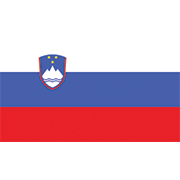Fiscal subject related
The proposed revisions contain a number of steps to combat VAT fraud, such as the implementation of a real-time digital reporting system, including e-invoicing, beginning January 1, 2028. A single VAT registration system will also be deployed across the EU, together with amended VAT regulations for platforms that provide short-term housing and passenger transportation.
The proposed revisions include a clarification of the taxation threshold in the supplier's home country in order to avoid VAT fraud in cross-border and intra-EU supply of goods. The new rule will specifically apply to transactions over 10,000 euros starting on January 1, 2024.
The reverse charge mechanism and the adoption of one-stop import arrangements will both be mandated by the proposed modifications for domestic business-to-business shipments.
Before making any judgments, the proposed adjustments will be carefully examined and taken into account. The EU seeks to provide an equitable and contemporary tax system for all citizens by modernizing tax laws and putting measures in place to combat VAT fraud.
Other news from Slovenia
Fiscalization Update in Slovenia v3.1: New Technical Documentation and Mass Business-Premise Registration Service Now Released
 Slovenia
Author: Vukašin Santo
Slovenia
Author: Vukašin Santo
A new technical documentation version 3.1 has been released, introducing updates to business-premise registration in the production environment and adding a new service for mass registrations. The updated developer instructions provide revised specifications and guidance to help stakeholders adapt their systems, further improving efficiency and integration within the fiscalization process A new ve... Read more



New document was uploaded: S4F backoffice installer
S4F backoffice installer is intended for users who are installing the software for the first time. Please make sure to obtain latest version of installer and to apply all subsequent patches that are released subsequently. This package contains instruction, release notes, changelog and software packages required for deployment of this software component. This version of the Backoffice installer supports the following countries: Austria, Bulgaria, Croatia, France, Italy, Poland, Portugal, Romania, Slovakia and Slovenia. Read more
Subscribe to get access to the latest news, documents, webinars and educations.
Already subscriber? Login


Slovenia Sets 2028 Deadline for Mandatory B2B e-Invoicing
 Slovenia
Author: Vukašin Santo
Slovenia
Author: Vukašin Santo
Slovenia mandates electronic invoicing for B2B transactions starting January 2028, encouraging businesses to prepare through pilot projects and process alignment. The decentralized model, requiring structured XML formats, aims to streamline operations, enhance VAT compliance, and reduce manual workload. Slovenia is preparing for a major digital transformation in business transactions, announcing t... Read more



Slovenia: Scheduled Maintenance on the eDavki System, November 8, 2025
 Slovenia
Author: Vukašin Santo
Slovenia
Author: Vukašin Santo
Urgent maintenance on the eDavki system will occur November 8, 2025, from 2:00 PM to 3:00 PM, possibly causing temporary disruptions. The Tax Administration has announced that urgent maintenance work on the eDavki system infrastructure will take place on Saturday, November 8, 2025, between 2:00 PM and 3:00 PM. Although no service interruption is expected, users may experience temporary disruption... Read more



Slovenia: FURS to Replace TLS Server Certificate in Fiscal Verification System on November 11, 2025
 Slovenia
Author: Vukašin Santo
Slovenia
Author: Vukašin Santo
The Financial Administration of the Republic of Slovenia (FURS) has announced that it will replace the digital server certificate used to establish the TLS connection for the fiscal verification system on November 11, 2025 The Financial Administration of the Republic of Slovenia (FURS) has announced that it will replace the digital server certificate used to establish the TLS connection for the fi... Read more



Slovenia Advances Digital Tax Transition: Updated FURS Documentation and Revised eInvoicing Timeline
 Slovenia
Author: Vukašin Santo
Slovenia
Author: Vukašin Santo
Slovenia’s Financial Administration (FURS) has released version 0.08 of the technical documentation for the “Record of Calculated VAT and VAT Deduction,” outlining key requirements for upcoming digital tax reporting reforms. The updated framework introduces mandatory electronic VAT record submission from July 2025 and B2B eInvoicing from January 2027, shifting data exchange to accredited providers... Read more



Fiscalization of Public EV Charging in Slovenia: Ensuring Tax Compliance and Transparency in Green Mobility
 Slovenia
Author: Vukašin Santo
Slovenia
Author: Vukašin Santo
Slovenia’s Financial Administration (FURS) mandates fiscal verification for all payments at public EV chargers, ensuring each transaction is recorded with a unique ID, electronic signature, VAT details, and total energy consumed. Read more
Subscribe to get access to the latest news, documents, webinars and educations.
Already subscriber? Login

